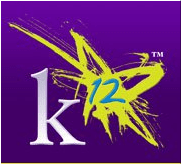Responding To Tennessee State Representative Craig Fitzhugh

I couldn’t let this column by state Rep. Craig Fitzhugh (D-TN) titled, “Virtual Schools Bad for Education Reform” go by without responding. It was so full of errors I almost didn’t know where to start. I don’t know Rep. Fitzhugh, so I won’t suggest he was intentionally misleading readers. I’ll just give him the benefit of the doubt and presume that he doesn’t know what he’s talking about. Let me attempt to dissect it.
Rep. Fitzhigh writes, “Under HB 1030, local school boards can still start their own virtual school, but now the state has opened the door to for-profit businesses running virtual schools as well.”
First, public virtual schools are all non-profit. Second, HB 1030 codified existing law and clarified that school districts can contract with education providers (for-profit and non-profit) for online courses and school services – something they’ve been doing for years. The intent of the legislation was to provide clarity for school districts and encourage innovation by offering more online and blended learning programs for students.
“First, I opposed this bill because public education is not intended to be a for-profit business. Tennessee’s constitution requires us to provide free public education to every student in the state. Under HB 1030, school boards can now charge tuition to students for virtual schools.”
Huh? I can assure you, this bill did not make public education a for-profit business, nor did it alter the state’s constitution. If the Representative was trying to suggest that Union County Public School’s new online school, Tennessee Virtual Academy (TNVA), is charging tuition, well then he’s wrong. Like all other public schools in the state, TNVA is a tuition-free public school.
Other school districts, like Hamilton County Public Schools, charge fees for their virtual school. But that wasn’t because of HB 1030. Hamilton County Virtual School has been charging fees for awhile now.
“Additionally, millions of your tax-payer dollars will go to private companies”
School districts in Tennessee don’t do business with private, for-profit companies? Well I guess Habitat for Humanity must have built a lot of school buildings in Tennessee. Look, that’s just an argument without any merit. Every school district in America uses taxpayer dollars to pay private companies for a whole range of products and services: textbooks, computers, construction, food, instructional services, and on and on. In fact, for years the (now defunct) state virtual school, e4TN, used online courses and platforms from private, for-profit companies. Hamilton County Virtual School continues to use for-profit companies, but that doesn’t make it a “for-profit virtual school.”
“the state will still be forced to provide computer and internet access to students enrolled in these for- profit virtual schools.”
If it’s good to provide buses to bring students to school, why is it bad to provide technology to bring school to the student? Increasing access to technology so students can participate in high quality courses – AP and honors, world languages, etc. – especially for children in low-income and rural areas, has been a national priority for years.
“K-12 Inc is a multi-million dollar virtual schools company founded by a convicted felon.”
No. Wrong. False. I can only guess Rep. Fitzhugh is recycling erroneous reports that Michael Milken founded the company. Mr. Milken was never on the K12 board and never held any leadership or management position in the company. The company was founded by Ron Packard. The K12 Board of Directors includes many notable individuals including: Dr. Mary Futrell, former President of National Education Association and Virginia Education Association, and Craig Barrett, retired CEO and Chairman of Intel Corp. and former faculty member at Stanford University.
“Don’t be fooled, K-12 Inc didn’t do this because they care about education; they did it because they stand to make millions by starting for-profit, tuition charging schools with your tax-payer dollars.”
Again, Union County’s online school is a non-profit, zero-tuition public school. As to the ad hominem attack, well, it’s obvious Rep. Fitzhugh knows nothing about K12’s culture. Clearly he has never met any of the thousands of dedicated K12 teachers, school counselors, advisors, and special education teachers that work every day with kids of all socioeconomic and cultural backgrounds. He’s never met K12’s team of curriculum and academic experts that have spent their entire lives devoted to improving education and helping kids learn. He’s never read the thousands of testimonials K12 receives from parents whose children are thriving using K12’s curriculum. But we would love to show him. Rep. Fitzhugh, you are more than welcome to visit K12 anytime.
“I am opposed to this legislation because it promotes for-profit virtual schools as an alternative to traditional, in-classroom learning. It is irresponsible to do this because, as the National Education Policy Center points out, we have no data to show us how these for-profit virtual schools will perform against traditional public schools.”
Is he suggesting children should not be given any education alternatives? I hope not. All parents know that every child is unique. Some, like this young boy in Tennessee, struggled in classrooms. Other kids deal with very serious situations and desperately need options like online public schools. A safe environment where students can get highly individualized learning programs customized for their needs can be, for some children, a life saver.
As to the online learning is “unproven” charge, well, I can only point to what the research and expertssay.
Nobody is suggesting online schools are better than traditional schools. What works for one child may not work for another. But here’s the key principle: children need school options. They deserve them. All children, regardless of where they live or how much money their parents make, should have access to a public school best suited for their needs. That’s the promise of public education.
“Responding to Tennessee State Representative Craig Fitzhugh” was originally written by Jeff Kwitowski, the K12 VP of Public Affairs, on K12 Inc. Blog.







0 Comments
Leave a Comment
Your email address will not be published. All fields are required.